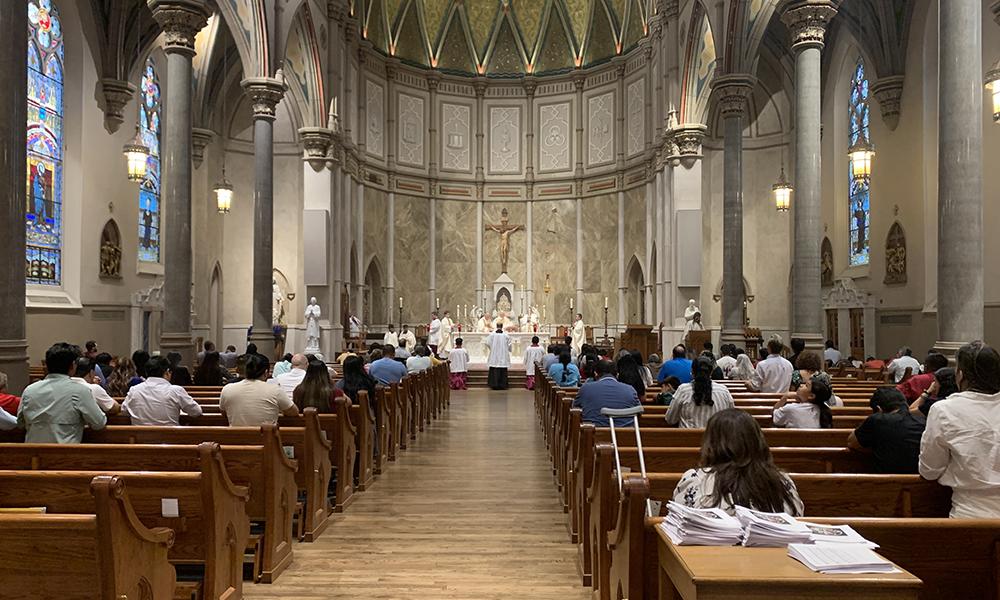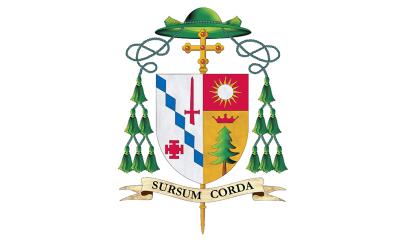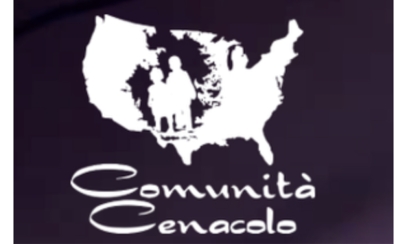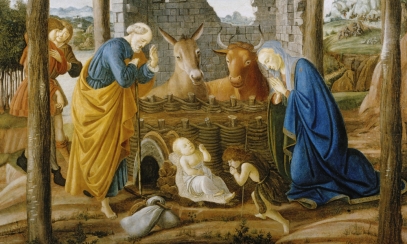
‘Part of one human family’
On June 24, Bishop Raica celebrated a Mass for immigrants and refugees at the Cathedral of St. Paul, marking the Solemnity of the Sacred Heart of Jesus.
On June 24, Bishop Raica celebrated a Mass for immigrants and refugees at the Cathedral of St. Paul, marking the Solemnity of the Sacred Heart of Jesus.
My brothers and sisters in Christ, today, on this very beautiful feast of the Most Sacred Heart of Jesus, we gather with those who are here in the United States and Alabama from other nations, from other parts of our world and from other cultures and languages to pray for the grace to recognize the gifts of one another as we our one human family becomes a tapestry of hope. The very name of Catholic richly implies a gathering of people from everywhere – every language, every culture, every society, and strata of life. We become a universal expression of the love of God in our world today. So, I extend this warm welcome tonight for those who’ve come to pray together.
Some here tonight know firsthand what it means to be a refugee or migrant because they have left their homeland for a place of promise and hope. It was one of the most important decisions you’ve made. How does a person make this decision without knowing all the details of where one is going? What is life going to like? Will I be accepted? Will my gifts be honored and treasured? Some come without long term resources, trusting on the good will of those they meet along the way for food, shelter, and livelihood. It is not like planning a vacation with every step accounted for. Who knows what perils lie in wait for people who are “on the move”?
My grandparents, too, were a family of immigrants – from Poland and Italy. They worked hard. We didn’t have everything and anything we wanted, but we had each other. We had our faith. We didn’t go on exotic vacations or cruises as children. We played in our neighborhood and took advantage of local community and parish activities surrounded by family, food, and faith. Visits from relatives and extended family were welcomed. We lacked a lot by today’s standards, but we had what we needed and more. It was part of my grandparents’ dream to live in freedom and pursue their self-determination without interference. There was no aid or support from governmental agencies, yet, we had what we needed.
America, specifically the United States, has been a powerful magnet – a land of dreams and opportunity in the imagination of many. For those oppressed, it becomes a “land of the free and the home of the brave.” While there are some who are trying to undermine and take advantage of the system – I recognize it is not a perfect system here – the vast majority of migrants and refugees strengthen the genius of the American experiment and should be welcomed with open arms. Throughout our beloved Diocese of Birmingham, the presence of Catholic immigrants strengthens our faith and our parishes. I am sensing that there is a new dynamism that may not fully be appreciated yet. We must learn from each other and appreciate each other’s journey.
On this great feast of the Sacred Heart of Jesus, we cannot help but see the beating heart of love of Jesus for all. Yes, it is a beating heart of love. It’s curious that there is no feast day of the Sacred Brain of Jesus. No, it’s a Sacred Heart. It is a feast day of love and affection that reaches out to those abandoned, to those wounded and hurt, to those in need of friendship and a loving embrace. It is followed tomorrow by the Immaculate Heart of Mary. Two great feast days that beat with love for all. So should we embrace all with that same mercy and affection as Jesus and Mary.
Pope Francis is no stranger to the plight of migrants and refugees. Indeed, he has a passion for the journey of those who may get left behind. We learn from one another, and, together in all our diversity, we build stronger relationships as sisters and brothers, part of one indivisible family. We must reflect on this gift that brings us from an “I” to a “we,” through the “greatest gift which surpasses all the others,” as St. Paul reminds us.
This year, Pope Francis is reflecting on migrants and refugees, too. His thoughts are important for us to consider this evening. Pope Francis said:
Nadie debe ser excluido. Su proyecto es esencialmente inclusivo y sitúa en el centro a los habitantes de las periferias existenciales. Entre ellos hay muchos migrantes y refugiados, desplazados y víctimas de la trata. Es con ellos que Dios quiere edificar su Reino, porque sin ellos no sería el Reino que Dios quiere. La inclusión de las personas más vulnerables es una condición necesaria para obtener la plena ciudadanía. De hecho, dice el Señor: «Vengan, benditos de mi Padre, y reciban en herencia el Reino que les fue preparado desde el comienzo del mundo, porque tuve hambre, y ustedes me dieron de comer; tuve sed, y me dieron de beber; estaba de paso, y me alojaron; desnudo, y me vistieron; enfermo, y me visitaron; preso, y me vinieron a ver» (Mt 25:34-36).
Construir el futuro con los migrantes y los refugiados significa también reconocer y valorar lo que cada uno de ellos puede aportar al proceso de edificación. Me gusta ver este enfoque del fenómeno migratorio en unavisión profética de Isaías, en la que los extranjeros no figuran como invasores y destructores, sino como trabajadores bien dispuestos que reconstruyen las murallas de la Nueva Jerusalén, la Jerusalén abierta a todos los pueblos. (cf. Is 60:10-11)
So, this evening, we remember that, like my grandparents who migrated to America for brighter futures, we as Christians – and especially as Catholics – welcome all as fellow travelers, all who dream of better things to come. Their courage and valiant efforts are reflected in this feast of the Sacred Heart of Jesus in which we are invited to be Christ-like in welcoming and sustaining those most in need by our love. In our prayer and in this Mass, may we remain steadfast in faith, unwavering in hope, and generous in our love of one another. We have been immensely blessed today. I thank God, in a particular way, that we are sisters and brothers, part of one human family!



